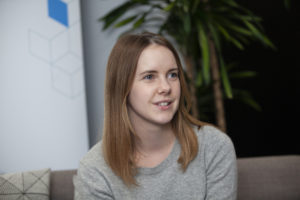Each year, the BX Awards celebrate the finest researchers and practitioners in the field of behavioural science. Here we take a look at the 2019 winners and runner-ups and their impactful work.
Winner of Outstanding Research
Ofgem Behavioural Insights Unit – Beth Moon, Annabelle Bonus, Moira Nicolson and Stephen O’Neill
Ofgem, the UK energy regulator, has been pioneering the application of behavioural insights to help consumers make better choices and save millions of pounds on their energy bills. They have just published the findings of a three year programme to find out what works in increasing engagement in energy tariff choices. For example, in one trial they achieved a switching rate of 26.9% in their best performing treatment arm – with ten times more people switching than in the control group. Here’s how they did it:
55,000 customers, who had been on expensive default tariffs for 3 years or more, were randomised into a control arm and multiple treatments arms. In the treatment arms, communications sign-posted customers to one alternative tariff and bespoke online or phone support provided by a third party switching service. The tariff was available exclusively to trial participants and negotiated via auction by Ofgem.
By priming customers with an initial letter highlighting how expensive their current energy deal was; making it simple and easy by removing steps from the switching process; using compelling messengers who provided a ‘hand-holding’ service; and encouraging action through deadlines and reminders, Ofgem were able to achieve a switching rate of 26.9% in most successful trial arm compared to 2.6% in the control group. Customers who switched saved almost £300 on average – with total savings to consumers of £3.9 million.
Ofgem have shown that letter based interventions can drive significant behaviour change even among the stickiest and most vulnerable consumers (the oldest switcher in the trial was over 100 years old!). More information about Ofgem’s research programme, including the nine other trials, can be found here. In addition, Annabelle Bonus’s presentation at BX2019 explains more about the work:
The best of behavioural science in UK Government: moving from micro to macro
Runner up for Outstanding Research
Dr Sander van der Linden and Jon Roozenbeek, University of Cambridge
Dr Sander van der Linden and Jon Roozenbeek have developed a highly novel program of research in which they evaluate whether people can be pre-emptively inoculated against the spread of fake news.
In collaboration with the media collective Bad News, they designed a social impact game which has reached about half a million people. In the game, players step into the shoes of a fake news producer. The game offers a simulated social media environment where participants are exposed to weakened forms of the most common strategies that underlie the production of fake news, including political polarization, floating conspiracy theories, use of emotions to manipulate people, etc.
They advanced prior research by showing that people can be inoculated not only against specific falsehoods, but against the very techniques that underlie most fake content. In a large pre-post gameplay design, they tested 15,000 people on a range of real and fake headlines embedded in tweets and found that people downgraded the reliability of fake headlines, but not real headlines. The effect was robust across age, education, and political orientation, evidencing the possibility of a “broad-spectrum” vaccine. For more information, watch Dr Sander van der Linden’s presentation from the BX2019 conference below or read their recent journal article.
Tackling disinformation & fake news using behavioural science with Tali Sharot
Winner of Outstanding Practitioner
Dr Mitesh Patel, Penn Medicine Nudge Unit
Dr. Patel is the founding director of the Penn Medicine Nudge Unit, the world’s first behavioural design team embedded within the operations of a health system. His team began in 2016 with two people running three projects and has since grown to over 20 people with over 50 active projects at Penn Medicine and other health systems around the world.
Here are some highlights of Dr Patel’s work:
- Changing prescription settings in the electronic health record from opt-in to opt-out generics increased generic prescribing across the entire health system from 75% to 99%, saving >$32 million of unnecessary spending in two years.
- Providing peer comparison feedback to clinicians which tripled statin prescribing rates.
- Setting electronic health record defaults cut unnecessary imaging for palliative cancer patients in half from 68% to 32% and has been implemented health system-wide.
- Demonstrating how decision fatigue and rushed visits lead to worse care later in the day with 50% relative declines in flu vaccination and cancer screening in primary care clinics.
- Using financial incentives and gamification to lead to sustained improvements in physical activity even after intervention completion.
For more details about his work using financial incentives, watch his presentation from BX2019:
‘Should we pay to improve health behaviours?’ with Katy Milkman
Runner up for Outstanding Practitioner
Vee Snijders, Behavioural Science Service, Ministry of Justice NZ
Vee Snijders is a Principal Advisor in the Behavioural Science Service within the Ministry of Justice New Zealand. Vee successfully built the case for a dedicated behavioural science team working across the Justice Sector and with the help of staff in the Justice Agencies she has launched six trials to date.
Here are some highlights of Vee’s work:
- A social norm letter led to a 7.2% (3.1pp) increase in people paying their late fines. The expected annual financial benefit if this letter is used from now on is between $300k and $1.7m annually.
- A redesign of the letter summoning people to court for failing to pay their fines led to an estimated increase of 6,700 to 10,200 people paying or setting up an arrangement, thereby not having to go to court.
Congratulations to all our winners and runners up. It’s wonderful to see the field of applied behavioural science growing and maturing through these diverse award winners.
Further BX2019 conference sessions are now available to view on our YouTube channel. For more details about BX2020, visit www.bx2020.org.



